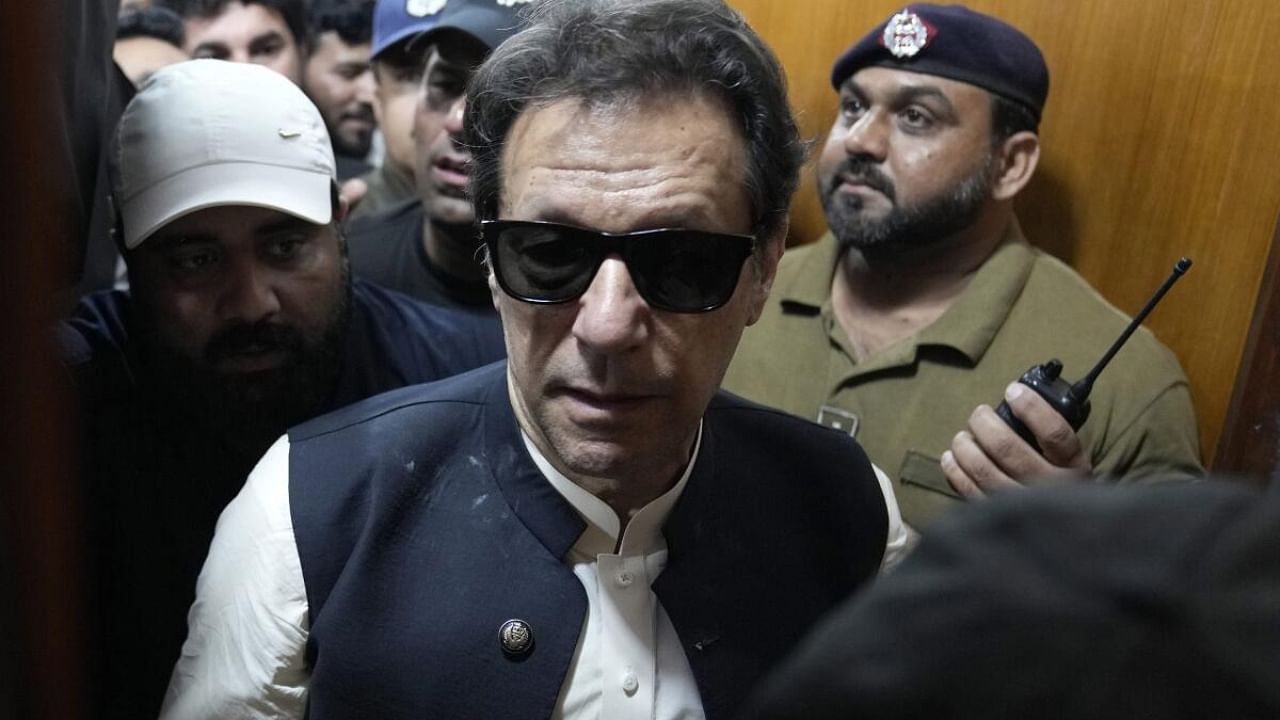
Nine more members of Imran Khan's Pakistan Tehreek-e-Insaf party were arrested and handed over to the Pakistan Army on Wednesday to be tried under the stringent Pakistan Army Act over their alleged role in the May 9 attacks on sensitive military installations and government buildings.
With these arrests, the total number of PTI activists to be tried under the Army Act and the Official Secrets Act has exceeded 50.
“On the orders of the anti-terrorism courts, nine suspects belonging to PTI and involved in the attack on the ISI buildings (in Faisalabad city) and military installations in Multan Cantonment were handed to the Pakistan Army on Wednesday for their trial under the Army Act and Official Secrets Act," a court official said.
On May 9, violent protests erupted after paramilitary Rangers arrested 70-year-old Khan, the chairman of the Pakistan Tehreek-e-Insaf (PTI) party from the Islamabad High Court premises in connection with a corruption case.
His party workers vandalised a dozen military installations, including the Lahore Corps Commander House, the Mianwali airbase and the ISI building in Faisalabad in response to Khan's arrest.
The mob also stormed the Army headquarters (GHQ) in Rawalpindi for the first time.
Thousands of Khan’s supporters were arrested following the violence that the powerful Army described as a “dark day” in the history of the country.
The crackdown launched after May 9 violent protests have thrown PTI into a deep existential crisis with dozens of key party leaders quitting the party on a daily basis.
The prominent leaders who have quit Khan's party include Secretary General Asad Umar, senior leader Fawad Chaudhry and former minister Shireen Mazari.
Earlier this month, the National Assembly, the lower house of Pakistan's Parliament, passed a resolution vowing to try May 9 rioters under the existing laws including the stringent Army Act and the Official Secrets Act.
Khan, a former cricketer-turned-politician, was ousted from power in April last year after losing a no-confidence vote in his leadership, which he alleged was part of a US-led conspiracy targeting him because of his independent foreign policy decisions on Russia, China and Afghanistan.